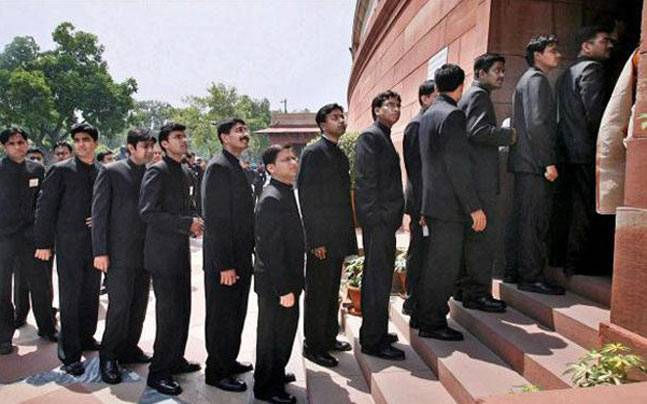Civil Engineering
- SarkariResult

- Jun 7, 2023
- 3 min read
Certainly, here's some information about civil engineering:
**Civil Engineering:**
Civil engineering is a branch of engineering that focuses on the design, construction, maintenance, and management of the built environment. Civil engineers work on a wide range of projects, including infrastructure, buildings, transportation systems, and water resources.
**Key Aspects of Civil Engineering:**
1. **Structural Engineering:** Civil engineers design and analyze structures such as buildings, bridges, dams, and towers to ensure they are safe, durable, and able to withstand various loads and environmental conditions.
2. **Geotechnical Engineering:** This area deals with soil mechanics and foundation design. Civil engineers assess soil properties and design foundations for structures to ensure stability.
3. **Transportation Engineering:** Civil engineers design and plan transportation systems, including roads, highways, railways, airports, and public transit systems, to ensure efficient and safe movement of people and goods.
4. **Water Resources Engineering:** Civil engineers work on projects related to water supply, wastewater treatment, flood control, and water resource management.
5. **Environmental Engineering:** This field focuses on designing solutions to environmental challenges, such as waste management, pollution control, and sustainable development.
6. **Construction Management:** Civil engineers manage construction projects from planning to execution, ensuring that projects are completed on time and within budget while meeting quality standards.
7. **Urban Planning:** Civil engineers collaborate with urban planners to design and develop cities, towns, and communities with a focus on functionality, aesthetics, and sustainability.
8. **Materials and Testing:** Civil engineers select and test construction materials to ensure quality and durability in various projects.
9. **Surveying and Land Development:** Civil engineers use surveying techniques to measure and map land areas for development, construction, and property boundaries.
**Career Opportunities:**
Civil engineers can work in various sectors, including:
- Infrastructure Development
- Construction
- Transportation
- Environmental Protection
- Urban Planning
- Water Management
- Geotechnical Engineering
- Structural Engineering
**Education:**
To become a civil engineer, individuals typically need a bachelor's degree in civil engineering or a related field. Some positions, especially in research or specialized areas, may require advanced degrees.
**Skills:**
Civil engineers need strong problem-solving skills, attention to detail, analytical thinking, and the ability to work collaboratively. They also use various software tools for design, analysis, and project management.
**Languages:**
In Marathi, "Civil Engineering" can be translated as "नागरी (जनपद) अभियांत्रिकी."
**Civil Engineering Salary:**
The salary of a civil engineer can vary based on factors such as experience, location, industry, and specialization. in the United States, the average salary for a civil engineer ranged from around $60,000 to over $100,000 per year.
**Civil Engineering Salary in Pune:**
In Pune, India, the salary of a civil engineer can vary based on factors like experience, skills, and the industry they work in. As of my last update, the average salary for a civil engineer in Pune could range from around INR 3 to 8 lakhs per annum or more.
**Civil Engineering Jobs:**
Civil engineers can work in various industries, including construction, infrastructure, transportation, environmental protection, urban planning, and more. They can hold positions such as design engineer, project manager, construction manager, structural engineer, and more.
**Civil Engineering Subjects:**
Civil engineering programs cover subjects such as:
- Structural Analysis and Design
- Geotechnical Engineering
- Transportation Engineering
- Fluid Mechanics
- Environmental Engineering
- Construction Management
- Surveying
- Materials Science
- Hydraulics
- Engineering Mathematics
- Concrete Technology
- Reinforced Concrete Design
- Steel Structures
- Urban Planning
**Civil Engineering Colleges in Mumbai:**
Mumbai has several well-known colleges and institutions offering civil engineering programs. Some of them include the Indian Institute of Technology Bombay (IIT Bombay), Veermata Jijabai Technological Institute (VJTI), and more.
**Civil Engineering Course:**
Civil engineering courses are available at various educational levels, including diploma, bachelor's, master's, and doctoral degrees. These courses cover a wide range of subjects related to design, construction, management, and analysis of civil infrastructure.
**Civil Engineering Jobs in Pune and Mumbai:**
Both Pune and Mumbai offer numerous job opportunities for civil engineers, considering the ongoing development and infrastructure projects in these cities.
**Civil Engineering Salary Per Month:**
To estimate the monthly salary of a civil engineer, you can divide the annual salary by 12.



Comments